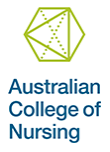Applied Neonatal Physiology

This is the foundational neonatal unit of study. The purpose of this unit is to develop students’ understanding of fetal, neonatal and maternal physiology and pathophysiology, and to apply this theory to practice. An overview of embryological, fetal and neonatal growth and development is provided. Students are also guided through the processes of neonatal transition and adaptation. The concepts of oxygenation, thermoregulation and metabolism are discussed in relation to maternal and neonatal health in the early newborn period. These concepts underpin the neonatal clinician’s ability to provide evidence based neonatal care.
Term : JULY
Hours of Study: 150
Credit Points : 6
Theme 1: Embryonic and fetal development
Examine homeostasis, and models of behavioural organisation and development in the neonatal care context.
Theme 2: Antenatal considerations
Evaluate the impact of psychosocial assessment, on the provision of culturally safe and respectful antenatal care for vulnerable families.
Theme 3: Transition from fetus to neonate
- Distinguish between normal and altered embryonic and fetal development, transition and adaptation
- Analyse the relationship between maternal and neonatal health outcomes
- Appraise the specialist knowledge and contemporary literature relating to pregnancy and birth physiology and pathophysiology
- Assessing Treatment Effectiveness course
- Posted By eIntegrity Healthcare e-Learning
- Posted Date: 2025-01-14
- Location:Online
- This session describes how to compare the effectiveness of different analgesics and explains why com...
- Antidepressants and Anticonvulsants course
- Posted By eIntegrity Healthcare e-Learning
- Posted Date: 2025-01-14
- Location:Online
- This session describes the pharmacology of antidepressants and anticonvulsants and their clinical us...
- Local Anaesthetics course
- Posted By eIntegrity Healthcare e-Learning
- Posted Date: 2025-01-14
- Location:Online
- This session describes the pharmacology of local anaesthetics and their clinical uses as analgesics....
- Opioids for Persistent Pain: Using Opioids in Prac...
- Posted By eIntegrity Healthcare e-Learning
- Posted Date: 2025-01-14
- Location:Online
- This is the second of two sessions covering the use of oral and transdermal opioids for persistent p...
- End of Life Care | Advance care planning | Advance...
- Posted By eIntegrity Healthcare e-Learning
- Posted Date: 2025-01-13
- Location:Online
- This session focuses on principles of good practice which underpin the appropriate and valid use of Advance Decisions to Refuse Treatment (ADRT), within an end of life care context. This session was reviewed by Fiona Rawlinson and Sarah Hanrott and last u



